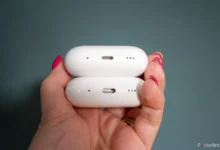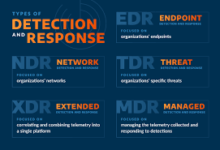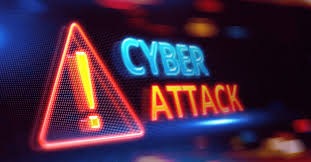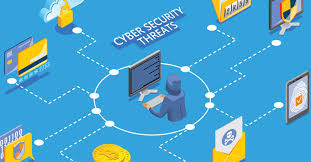What is a Decentralized Exchange (DEX)? A Comprehensive Guide for 2025
The way DEXs work, without requiring an intermediary, is changing how cryptocurrency trades happen. While CEXs are responsible for user funds and often experience hacks or inspections from authorities, DEXs allow users to handle their assets on their own.
Here, you can learn about DEXs, understand how they function, their positive traits, the leading DEXs of 2025, and get a guide to Apex Omni.
What is a Decentralized Exchange?
A DEX allows users to trade cryptocurrencies without a middleman. Using code made to run automatically on the blockchain, DEXs do not need a central authority for their trades. The peer-to-peer system echoes the main goals of cryptocurrency: decentralization and accepting personal responsibility for financial actions. Uniswap and Apex Omni work on the secure and transparent Ethereum, Arbitrum, or Avalanche blockchains.
How Do DEXs Work?
DEX trading is based on the blockchain to make transactions possible. They ensure everything is handled correctly and visibly by enforcing coded rules for every exchange. Most DEXs rely on an AMM model, meaning that liquidity pools are the order books instead. People send their money into the pools, and computer algorithms calculate the prices of the assets according to the available supply and demand. Uniswap’s system of instant exchanges is available through AMM, while dYdX relies on order books for providing derivatives trading.
When using a DEX, users keep their private keys and funds safe as they are never handed over. Showing their wallet (MetaMask) will allow users to see their balances and trade immediately, as they do not need to submit any personal information.
Why DEXs Are Useful
Many benefits make DEXs preferable to CEXs.
- Security: Users’ private keys prevent them from losing funds because of exchange hacking.
- Privacy: Many users of DEXs like Apex Omni prefer this route as they can keep their anonymity.
- Transparency: Every transaction is recorded in the blockchain, allowing users to review the information.
- Global Access: Since DEXs operate globally, anyone can use them, no matter where they are.
- Cost Efficiency: Since DEXs don’t require intermediaries, trading is often cheaper, though the use of Ethereum, for example, requires extra payments for gas.
At the same time, DEXs do have some issues. Expensive gas, few assets to trade, and uncertain laws may drive some people away. Those who oppose DEXs argue that not being overseen allows for illegal activities, though those fans of DEXs see them as representing financial freedom.
Top DEXs in 2025
The DEX ecosystem in 2025 is vibrant, with platforms catering to diverse trading needs. Here are the standout DEXs, as highlighted in Best Decentralised Exchanges in 2025:
| Rank | Name | Key Features | Pros | Cons |
| 1 | Apex Omni | Hybrid model, on-chain settlement, low fees, gas-free trading, futures, margin trading | CEX-like speed with DEX security, non-custodial, institutional-grade | None noted |
| 2 | dYdX | Layer-2 with StarkWare, perpetual contracts with 20x leverage | Gas-free on layer-2, strong liquidity, deep order books | Focused on derivatives, lacks spot trading, and KYC for some features. |
| 3 | Uniswap | AMM model, Uniswap v4 with lower fees, enhanced liquidity pooling | Massive liquidity, no KYC, non-custodial | High Ethereum gas fees unless using layer-2, no order book |
| 4 | GMX | Operates on Arbitrum and Avalanche, leverages trading with minimal fees | Low-fee trading, zero price impact, staking rewards | Limited assets, lower liquidity compared to larger DEXs |
- Apex Omni, developed by Bybit, is an exchange that offers both centralized and decentralized features. Its advanced features allow even those new to trading to use it with confidence.
- dYdX is designed for traders interested in derivatives by providing gas-free trading through layer-2.
- Uniswap is an early creator of AMM. Because it has large liquidity and a wide range of tokens, it is popular for token swaps.
- GMX The fact that its trading fees are lower and the community drives it draws long-term users.
How to Use a DEX: Apex Omni Tutorial
Apex Omni stands out for its user-friendly interface and robust features. Here’s how to get started, based on the Apex Omni Guide:
- Open a New Account
Connect your MetaMask, Trust Wallet, or WalletConnect with Apex Omni. Since KYC isn’t mandatory, privacy is guaranteed.
You can use Apex Omni to enter the platform.
- Deposit Funds
Top up your wallet with cryptocurrencies such as USDT. You can use the Multichain Swap function to send your tokens from one blockchain to another (e.g., Ethereum to Arbitrum).
If you want to trade, transfer your funds to your perpetual account.
- Make a trade decision.
Decide on a trading pair such as ETH/USDT.
Decide whether to use the Market or Limit order, select the level of leverage (up to 20x), and initiate the trade by choosing “Buy/Long” or “Sell/Short.”
- Withdraw Funds
Send your cryptocurrency to a third-party wallet as soon as possible. The available withdrawal speeds are normal and fast.
Unique Features:
- Apex Omni Vaults: Deposit assets to earn passive income, akin to copy-trading.
- Apex Grid Bots: Automate trading strategies to buy low and sell high.
- Apex Social Points: Earn points through trading or referrals, redeemable for fee discounts or bonuses.
Conclusion
At the beginning of this innovation, decentralized exchanges have provided a way for people to trade safely while knowing that transactions are handled transparently. In 2025, many people in the industry rely on Apex Omni, dYdX, Uniswap, and GMX DEXs when trading. Once you know how DEXs run and test them on Apex Omni, you can access the benefits of decentralized finance.





